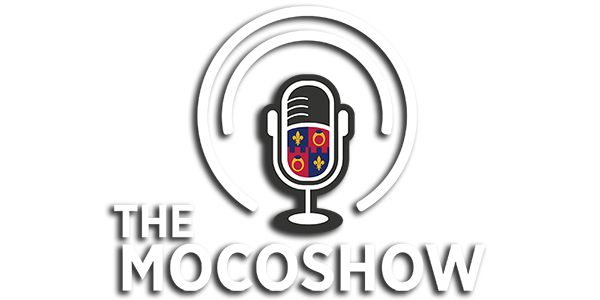As many of you already know, eating too many calories packs on some extra (sometimes unwanted) pounds. But did you know that it may have an effect on your cognition as well?
Studies suggest that not only can fasting a few days a week aid in preventing diseases such as Alzheimer’s, but may also help improve memory and mood!
How you may ask? To start, carbs turn into something called glucose. Glucose is what gives us the energy to do things! When you eat a cheeseburger, that burger stays in the body to be used for energy, until approximately 10-12 hours have gone by and it’s been depleted. Once those 10 hours are up, your body then begins to look for something else to use for energy. This is when fat comes in to play! Your body begins to use fat for energy when it no longer has “those cheeseburgers”.
When you consistently eat every few hours, you don’t allow your body to use fat as an energy option.
Not only can fasting help lower your glycogen, but exercise can also do the trick!
Try out these two fasting methods to lower your caloric intake:
5:2 Fasting Diet: Reduce your calories for two days per week with an allowance of 500-600 calories. The rest of the 5 days you eat how you normally would (but be mindful of your nutrition.) The two days you fast does not allow you to go overboard for the next five days)
A way in which you might structure this is:
Breakfast: An egg
Lunch or Dinner: Lean protein with some veggies
Time Restricted Fasting: 16 hour fasting period with an eating window of 8 hours. The purpose of this fast is to deplete your glycogen stores during the fast and begin using fat as its primary energy source.
Don’t be surprised if you experience some headaches here and there from the initial shock to your body from fasting. Your body is not used to this type of stress so it will take a week or so to really acclimate. Some side effects you may initially experience are: grogginess, grouchiness, irritability, headaches or lightheadedness.
Fasting can be a great method to drop some weight and reduce your caloric intake. The results from fasting are a heavily studied subject and continue to be with newfound studies constantly emerging.
There are many diets out there, keto, paleo, atkins diet, and many more. The idea behind the majority of them is that your body is placed in a calorie deficit, meaning, you burn more calories than you consume. That is the most important thing to take into account when dieting. Make sure you understand that before getting into a diet!
It’s not necessarily the diet that makes you lose weight, but the calorie deficit!
What are your thoughts on fasting? Have you fasted before? Share your comments below!
For more articles on health and fitness, checkout www.demefit.com
Demetra is not a physician or registered dietitian. The content of this article should not be taken as medical advice. It is not intended to diagnose, treat, cure, or prevent any health problem – nor is it intended to replace the advice of a physician. Always consult your physician or qualified health professional on any matters regarding your health.
Recent Stories
Mayor Jud Ashman and members of the City Council hosted the 2024 State of the City address on Thursday, April 18, at Asbury Methodist Village.
FEST OF SPRING Caribbean Wine Food & Music Festival
Get ready to experience the vibrant colors, tantalizing flavors, and infectious rhythms of the Caribbean at the FEST OF SPRING Caribbean Wine Food & Music Festival! Hosted by RHU LLC, this exciting festival is set to take place on May 18, 2024, at the picturesque 16700 Barnesville Rd in Boyds, MD.
Step into a world where the Caribbean spirit comes alive! From 12:00 PM onwards, immerse yourself in a sensory journey that celebrates the unique culture, cuisine, and music of the Caribbean. Whether you're an African American, a Reggae or Soca music enthusiast, a wine lover, or part of the vibrant Caribbean diaspora, this festival promises to delight and captivate you in every way.
Let the enticing aromas of mouthwatering Caribbean dishes tantalize your taste buds. Feast on traditional delicacies prepared by expert chefs, showcasing the rich and diverse culinary heritage of the Caribbean. Indulge in flavorful jerk chicken, succulent seafood, and delectable plantain dishes that will transport you straight to the islands.
Accompanying the culinary extravaganza is a carefully curated selection of premium wines, ensuring the perfect pairing for your palate. Sip on fine wines from renowned vineyards, each sip a reflection of the Caribbean's vibrant spirit. Discover new flavors, expand your wine knowledge, and savor unforgettable moments with every glass.
As the sun sets, get ready to groove to the infectious rhythms of Caribbean music. Feel the pulsating beats of reggae, soca, dancehall, and calypso, moving your body to the lively melodies. Live performances by talented musicians and performers will keep the energy high, ensuring a night of unforgettable entertainment.
Don't miss this opportunity to embrace the Caribbean spirit and celebrate the arrival of spring in style! Tickets are available on AllEvents, so secure your spot today. Join us at the FEST OF SPRING Caribbean Wine Food & Music Festival, where cultures collide and unforgettable memories are made.
LIVE PERFORMANCES By: CULTURE Feat. Kenyatta Hill, EXCO LEVI, IMAGE BAND, RAS LIDJ REGG'GO with Special Guest SUGAR BEAR FROM E.U. & MORE! & MORE!
MUSIC By: DJ ABLAZE, DJ SMALLY & NAJ SUPREME
2 NIGHT Camping packages available: RV/CAMPER $200 | TENTS $150 Starting on Friday May 17 @ 5pm | 30 RV SPACES | 30+ TENT SPACES
KIDS 12 & UNDER FREE!!!






